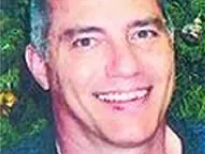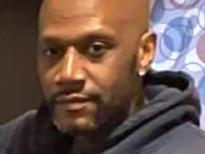End “Excited Delirium”
The Devastating Impact of Excited Delirium
“Excited delirium” garnered national attention after one of the officers involved in the killing of George Floyd asked whether Mr. Floyd was experiencing “excited delirium.” But the term has been used repeatedly to justify police actions across the United States.

Elijah McClain
- On August 24, 2019, 23-year-old Elijah McClain was walking home from a convenience store in Aurora, Colorado when he was unlawfully arrested, beaten, and placed in a carotid chokehold.
- Paramedics diagnosed him with “excited delirium” and administered a dose of ketamine for someone almost twice his weight. He went into cardiac arrest and died four days later.
- A forensic pathologist later said his death may have been the result of “excited delirium.”

Patrick Burns
- On January 23, 2010, 50-year-old Patrick Burns was experiencing a mental health crisis and entered his neighbor’s home by mistake, believing it was his own.
- Police were called to the scene where Burns was in the front yard. Police proceeded to restrain Burns with a hogtie and deploy Tasers 21 times. Burns died in the hospital five days later.
- A local examiner concluded the official cause of death was “excited delirium”, not the brutal use of force by law enforcement. In 2023, the Sangamon County Medical Examiner asked two forensic pathologists to review the case. The county amended the death certificate to “homicide” and concluded that restraint asphyxia was the cause of death, not excited delirium.

Daniel Prude
- On March 22, 2020, 41-year-old Daniel Prude died after Rochester police pinned him to the ground during a mental health crisis.
- Officers placed a hood over his head and applied their body weight to his head and torso. He lost consciousness and died a week later in the hospital.
- “Excited delirium” was mentioned as a secondary cause of death in the medical examiner’s report on the incident.

Angelo Quinto
- On December 23, 2020, 30-year-old Angelo Quinto was exhibiting agitation and other signs of a mental health crisis at home in Antioch, California.
- When two police officers arrived, they pulled Quinto from his mother’s arms onto the floor. Angelo begged, “Please don’t kill me.” The officers knelt on Quinto’s back for five minutes until he stopped breathing. Quinto died in the hospital three days later.
- In August 2021, a forensic pathologist testified during a coroner’s inquest that Quinto died from “excited delirium syndrome.”
If you have had a loved one or know of someone impacted by excited delirium, we encourage you to contribute to the database:
Submit to the Database